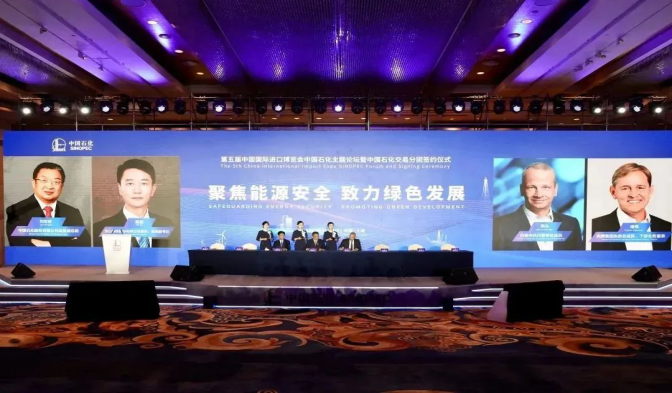China's first open ten million ton CCUS project was launched! I BASF Shell Sinopec Baowu

Signing site
On November 4, Sinopec signed a memorandum of understanding on cooperation with Shell, Baowu and BASF in Shanghai. The four parties will carry out cooperative research to jointly launch China's first open ten million ton CCUS (carbon dioxide capture, utilization and storage) project in East China, and create a low-carbon product supply chain for the existing industries in East China. The project will lead China's CCUS industry development to help achieve the "dual carbon" goal.
CCUS, namely carbon dioxide capture, utilization and storage, as its name implies, is the process of carbon dioxide emission reduction by capturing carbon dioxide from industrial emission sources and using it or injecting it into geological structures for storage. CCUS is a technology with the potential of large-scale emission reduction and an important part of the technology to achieve carbon neutrality.
The project will transport the carbon sources of industrial enterprises along the Yangtze River, such as steel mills, chemical plants, power plants, cement plants, etc., to the carbon dioxide receiving stations through tankers, and then transport the carbon dioxide from the receiving stations to the onshore or offshore storage sites through pipelines with short distance
Industrial enterprises along the Yangtze River in the eastern region provide flexible, effective and integrated carbon dioxide emission reduction programs.
The economy of East China is active, and the development of CCUS is in line with the decarbonization needs of the region. There are many national industrial parks in the zone. Taking Jiangsu Province as an example, there are many national industrial parks along the river, such as Nanjing Economic Development Zone, Yangzhou Economic Development Zone, Suzhou Industrial Park, Nantong Economic Development Zone, etc.
The deployment of CCUS cluster projects in the region can effectively reduce the unit decarbonization cost and significantly improve the overall operation efficiency.

The four enterprises in this cooperation complement each other's advantages, and take CCUS as the link to jointly build a green low-carbon supply chain and improve the international competitiveness of products. Decarbonization products are becoming more and more valuable in the global transformation towards a net zero emission environment. Sinopec, Shell, Baowu and BASF are all leading enterprises in the industry. Sinopec takes the lead in building China's first million ton CCUS project, and has the technology and practice of the whole industry chain of CCUS; Shell has the technical capability covering the whole industrial chain and the experience in commercial operation of international projects; China Baowu is the world's largest steel enterprise, and the first domestic enterprise to release the carbon neutral metallurgical technology roadmap to the world; BASF is one of the largest chemical enterprises in the world. The establishment and certification of industry standards have international influence. Through this project, the four enterprises will form a strong alliance to decarbonize the existing industry, create a value chain for low-carbon petrochemical, steel and other products, develop a market system for low-carbon products, unlock the added value of low-carbon products, and promote the development of a green low-carbon circular economy.

